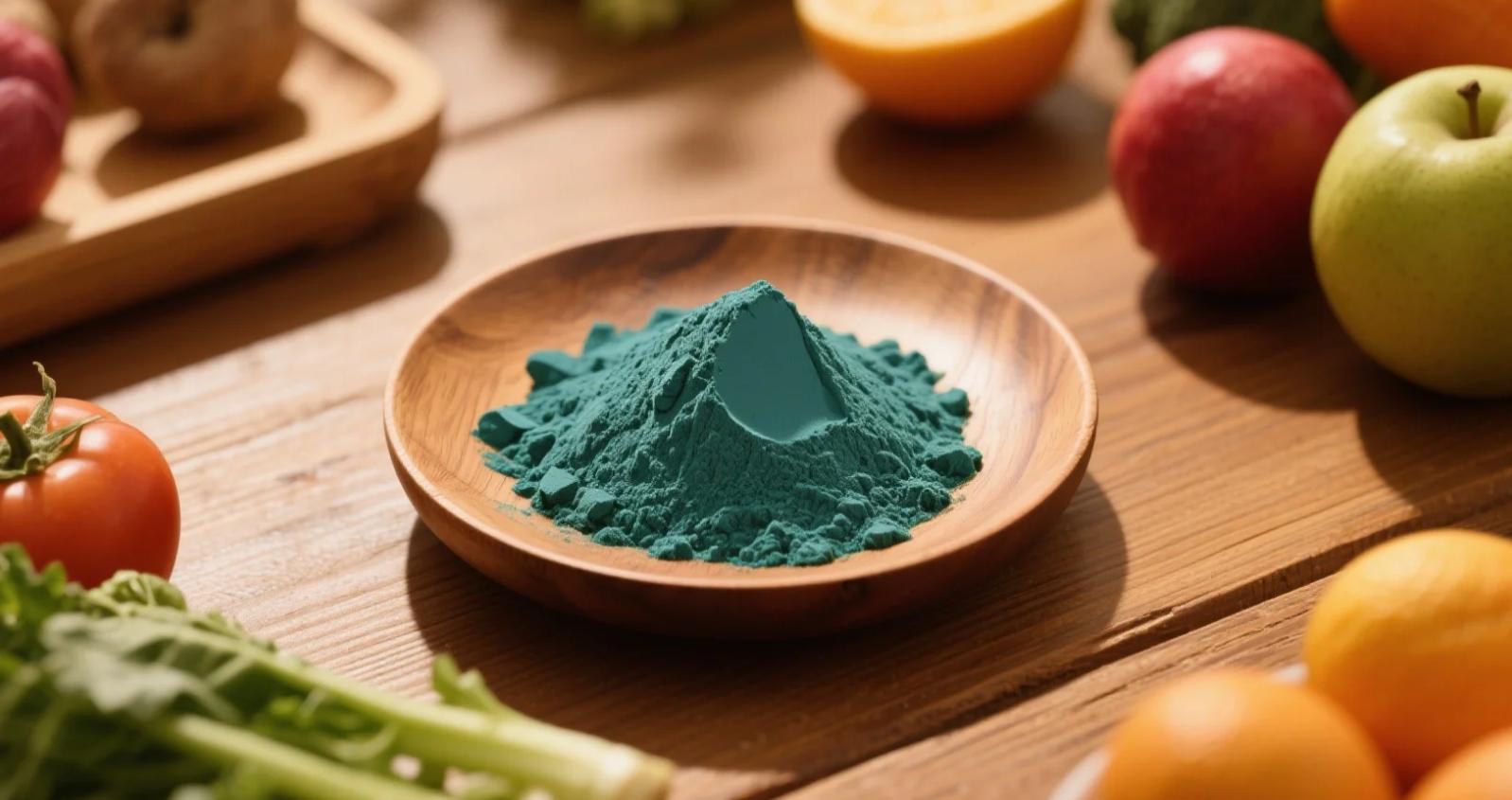Table of Contents
In the competitive food and beverage industry, color is a key factor in attracting consumers. For decades, many manufacturers relied on synthetic blue colorants to achieve vibrant hues. However, with the rising demand for clean-label, natural, and functional products, organic phycocyanin powder, a natural blue pigment extracted from organic spirulina, is rapidly becoming the preferred choice.
But how does it compare to synthetic alternatives, and why should your brand consider switching?
1. Source and Safety
| Aspect | Organic Phycocyanin Powder | Synthetic Blue Colorants |
|---|---|---|
| Origin | Plant-based, extracted from organic spirulina | Petrochemical-based chemicals |
| Safety | Non-toxic, rich in antioxidants | Potential health risks, regulatory scrutiny |
| Clean-Label Friendly | ✅ Suitable for organic and natural labels | ❌ Often restricted in clean-label formulations |
Organic phycocyanin powder is derived from a plant-based, sustainable source, making it safer for consumers and fully compatible with organic certifications. Synthetic dyes, on the other hand, may pose health concerns and limit marketing claims.
2. Functional and Health Benefits
Unlike synthetic colorants, organic phycocyanin colorant offers functional health benefits:
- Antioxidant properties: Helps combat free radicals
- Anti-inflammatory effects: Supports overall wellness
- Immune support: Adds value to functional beverages and nutraceuticals
Synthetic dyes provide color only, without any nutritional or functional benefits, giving natural pigments a competitive edge in the health-focused market.
3. Regulatory Compliance and Market Demand
- Organic phycocyanin powder complies with organic and natural food regulations worldwide, making it ideal for international markets.
- Consumer demand for clean-label products is growing, with a preference for ingredients that are plant-based, natural, and traceable.
- Synthetic blue dyes are facing stricter regulations in many countries, limiting their usage in food and beverage applications.
4. Versatility in Applications
Organic phycocyanin powder can be used in:
- Beverages: smoothies, juices, plant-based drinks
- Dairy: yogurt, ice cream
- Confectionery: gummies, chocolates
- Functional foods: protein bars, dietary supplements
- Cosmetics: natural blue color in skincare products
Its water-solubility, vibrant color, and functional benefits make it suitable for multiple product categories, unlike synthetic dyes that often have limited application flexibility.
5. Brand Value and Consumer Perception
Switching to organic phycocyanin powder can enhance your brand image:
- Promotes sustainability and eco-friendly practices
- Aligns with consumer preferences for natural, organic ingredients
- Supports premium pricing and differentiation in competitive markets
Brands that rely on synthetic colorants may struggle to meet clean-label and health-conscious consumer expectations, risking brand perception.
While synthetic blue colorants have historically provided vibrant hues, organic phycocyanin powder clearly outperforms them in terms of safety, functionality, regulatory compliance, and consumer appeal.
For brands aiming to innovate in the food, beverage, and nutraceutical sectors, adopting organic phycocyanin colorant is a strategic choice that meets market demand and reinforces a health-conscious, sustainable brand image.
Related Products
Organic Phycocyanin
Organic phycocyanin powder delivers natural blue coloring with antioxidant and anti-inflammatory benefits.…
